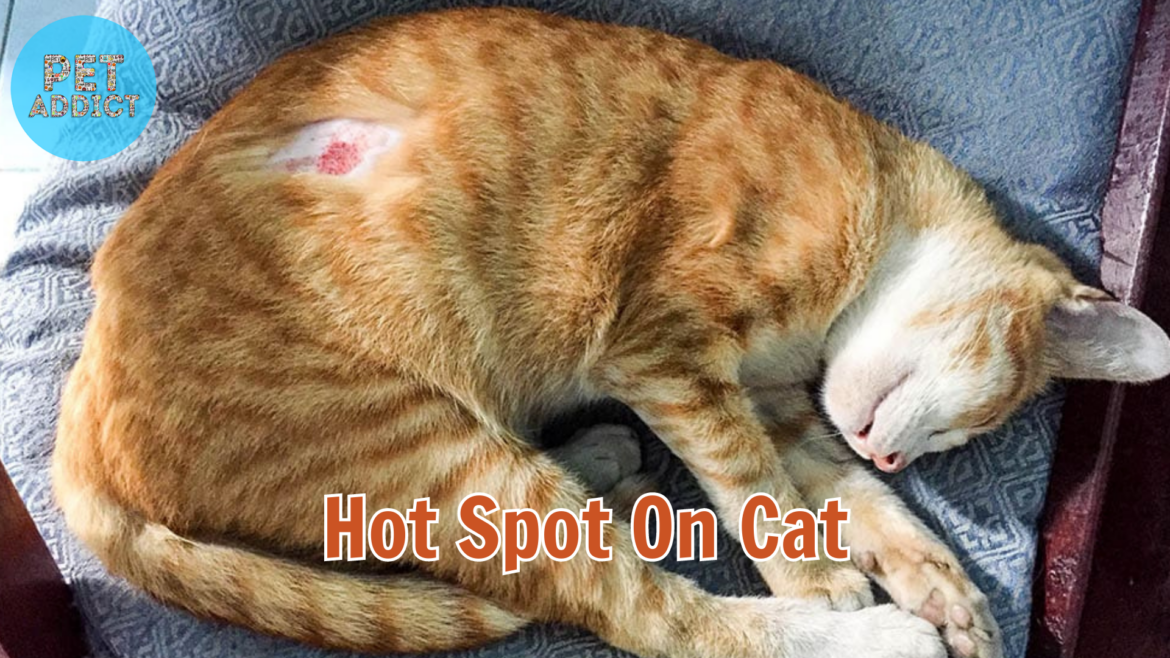Cats are known for their graceful and independent nature, but even the most agile feline can be plagued by health issues. One such issue is hot spots, which can cause discomfort and distress for your beloved pet. In this comprehensive guide, we’ll delve into the world of hot spots on cats – from understanding their causes to identifying, treating, and preventing them.
PetAddict.net – The best place where you can find everything about your pet!
Understanding Hot Spots on Cats
What Are Hot Spots?
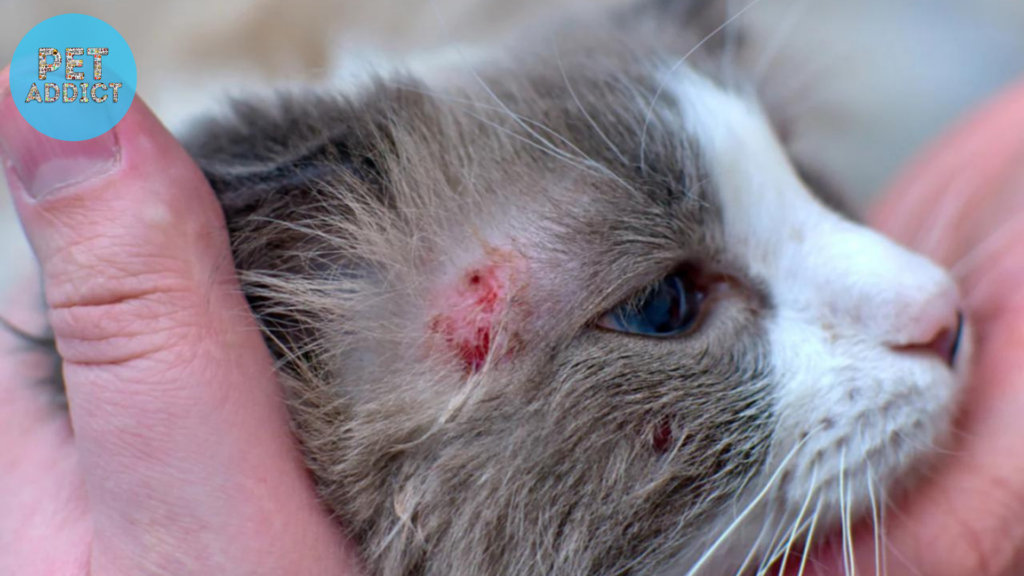
Hot spots, also known as acute moist dermatitis, are areas of inflamed and irritated skin that can appear suddenly on your cat’s body. These spots are typically red, moist, and itchy, causing your cat to scratch and lick excessively.
Causes of Hot Spots
Hot spots can have various triggers, including allergies, flea infestations, skin infections, and even boredom or stress. Cats with long or dense coats are more susceptible due to poor air circulation against the skin.
Common Locations
Hot spots often occur on areas that are easily reachable for your cat to scratch and lick, such as the head, neck, and base of the tail. However, they can appear anywhere on the body.
Identifying Hot Spots
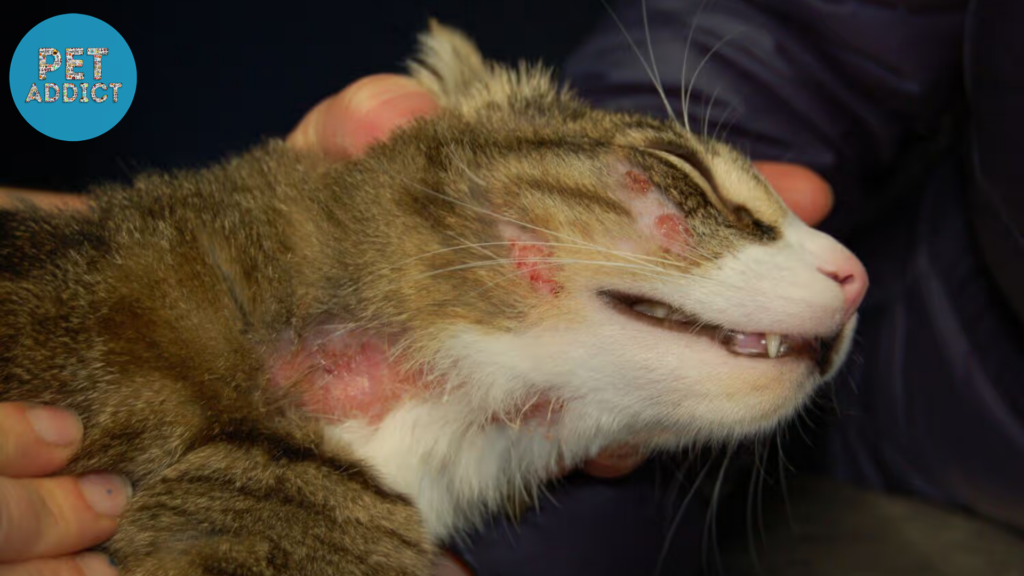
Physical Signs
Keep an eye out for red, oozing, and inflamed patches of skin. These areas may be painful to the touch and cause your cat to show signs of discomfort.
Behavioral Changes
If you notice your cat excessively scratching, biting, or licking a specific area, it’s a clear indicator that something is amiss. Cats may also exhibit restlessness or anxiety when dealing with hot spots.
Immediate Care for Hot Spots
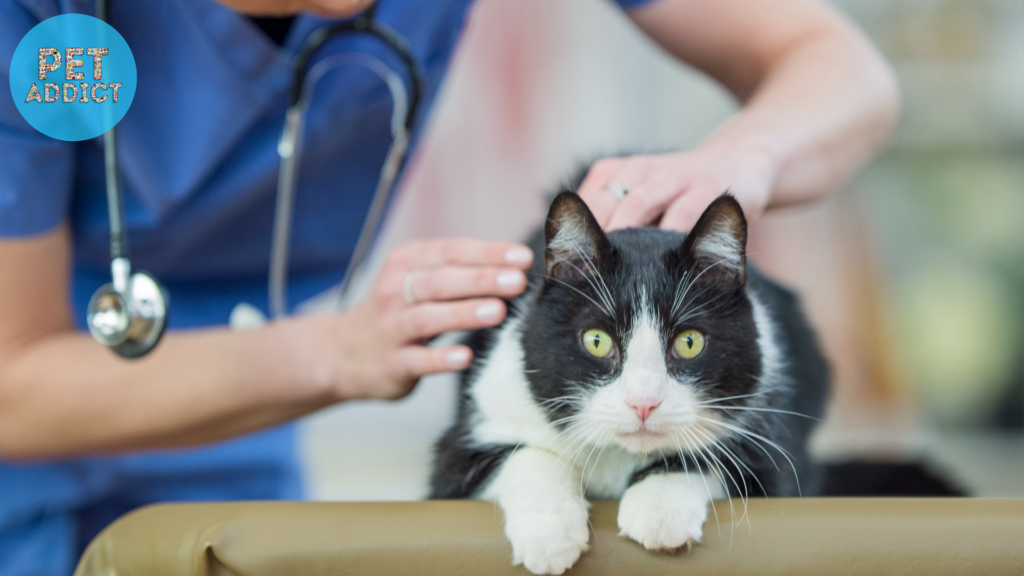
Gently Clean the Area
Using a mild, pet-safe cleanser, gently clean the affected area to remove dirt, debris, and any potential irritants. Pat the area dry with a clean cloth.
Keep the Area Dry
Moisture exacerbates hot spots, so it’s important to keep the area as dry as possible. Use a pet-safe, water-resistant ointment or powder to create a barrier.
Prevent Licking and Scratching
To prevent your cat from worsening the condition, consider using an Elizabethan collar (cone) to restrict their access to the hot spot. You can also use specially designed pet shirts to cover the area.
Home Remedies for Hot Spots
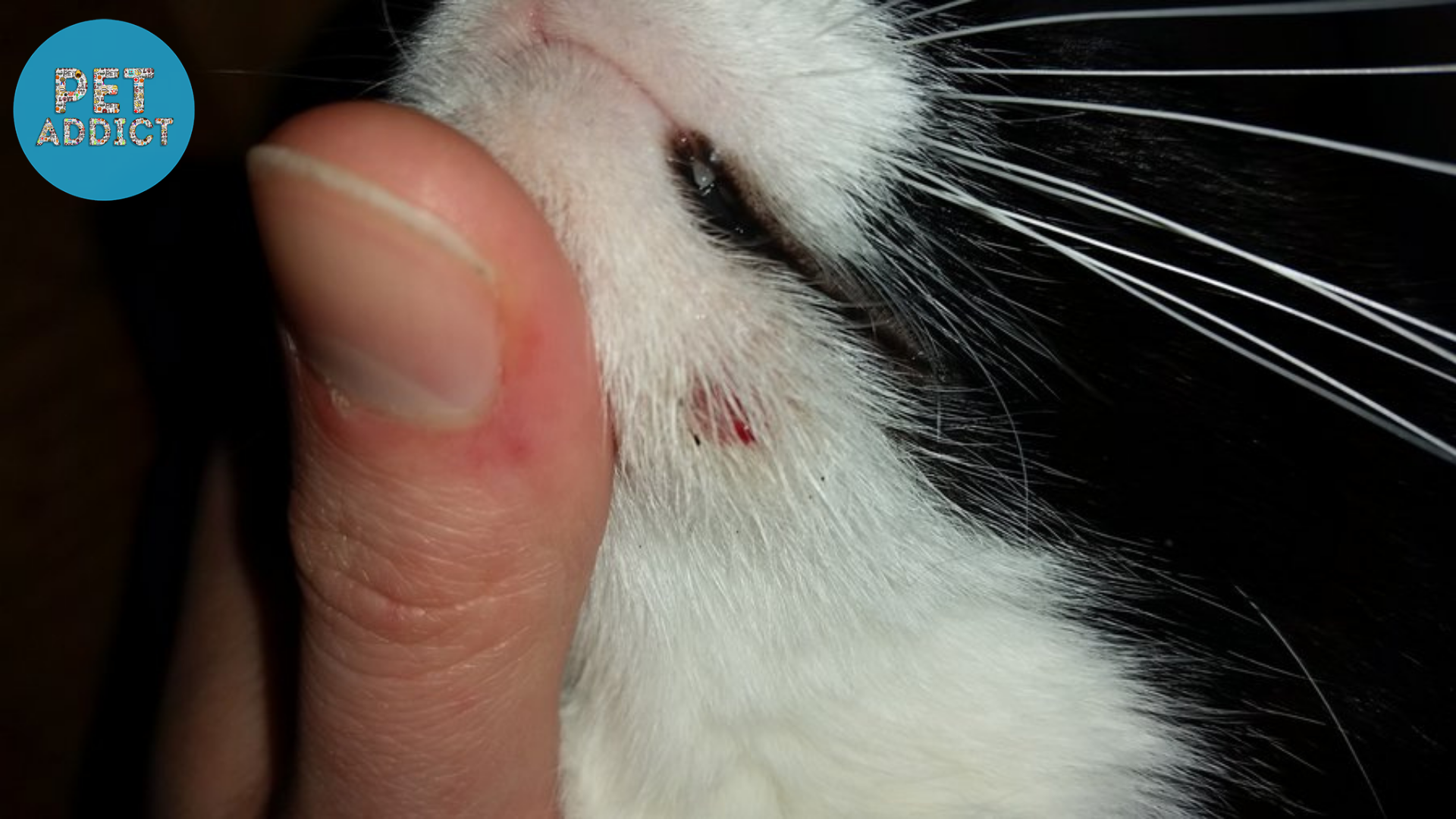
Herbal Teas and Rinses
Certain herbal teas, like chamomile or green tea, can have soothing properties. Brew a weak tea, let it cool, and use it as a gentle rinse on the hot spot.
Aloe Vera Gel
Aloe vera gel, known for its cooling and healing properties, can provide relief for your cat’s irritated skin. Ensure you use a cat-safe aloe vera product.
Coconut Oil
Coconut oil has antibacterial and anti-inflammatory properties. Apply a small amount to the hot spot to promote healing and alleviate itching.
Consulting a Veterinarian
When to Seek Professional Help
If the hot spot is large, oozing, or not showing signs of improvement after home care, it’s time to consult a veterinarian. Additionally, if your cat’s behavior is abnormal or if they’re in pain, seek professional advice.
Veterinary Treatment Options
Your veterinarian may recommend antibiotics, topical medications, or even a corticosteroid injection to manage the hot spot. They will also address the underlying cause.
Preventing Future Hot Spots
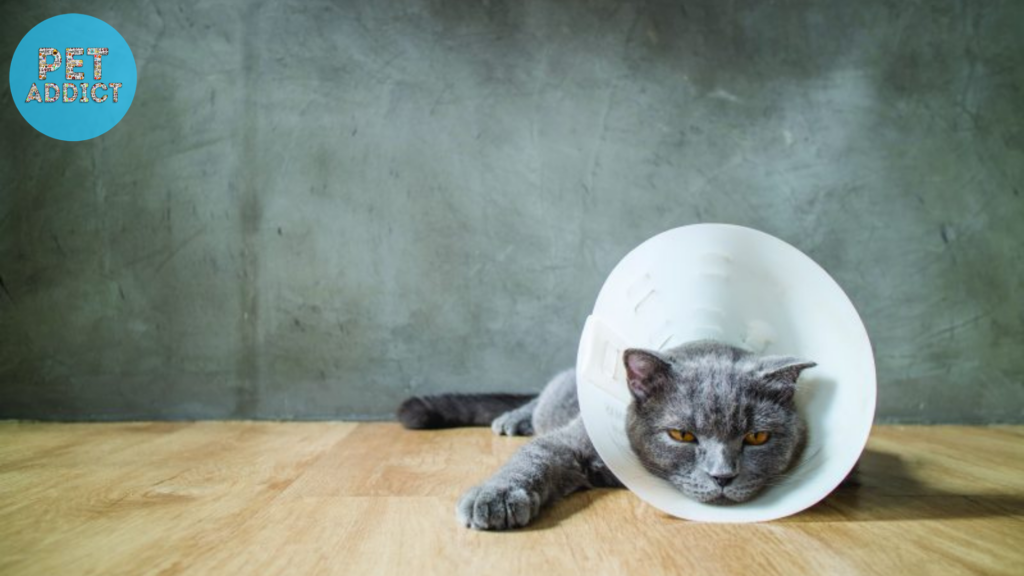
Regular Grooming
Regular grooming helps prevent tangles and mats that can contribute to hot spots. Brushing your cat’s coat also improves air circulation and overall skin health.
Managing Allergies
If allergies trigger hot spots, work with your veterinarian to identify the allergen and create a management plan. This may involve dietary changes or allergy medications.
Stress Reduction
Stress can weaken your cat’s immune system, making them more susceptible to hot spots. Provide a stress-free environment and engage in interactive play to alleviate anxiety.
Frequently Asked Questions (FAQs)
- Can hot spots spread to other pets? Hot spots are not contagious, so they won’t spread to other pets. However, it’s important to address the underlying cause to prevent recurrence.
- Can I use over-the-counter creams on my cat’s hot spots? It’s best to consult your veterinarian before using any over-the-counter creams or ointments. Some human products may be harmful to cats.
- Why does my cat keep getting hot spots? Recurrent hot spots can indicate an underlying issue, such as allergies or skin infections. Identifying and addressing the root cause is crucial.
- Can hot spots be a sign of an underlying health problem? Yes, hot spots can sometimes be a symptom of an underlying health problem. If hot spots recur frequently, consult your veterinarian for a thorough examination.
- Is it necessary to shave the fur around a hot spot? Shaving the fur around a hot spot can help keep the area clean and allow air to circulate. Your veterinarian will advise whether it’s necessary based on the severity of the hot spot.
Conclusion
Hot spots can be a bothersome and uncomfortable issue for your cat, but armed with knowledge and proper care, you can help your feline friend find relief. By understanding the causes, identifying the signs, providing immediate care, exploring home remedies, and seeking veterinary guidance when needed, you’ll ensure your cat’s well-being and comfort. Remember, prevention is key, so maintaining good grooming habits, managing allergies, and promoting a stress-free environment will go a long way in preventing future hot spots.

